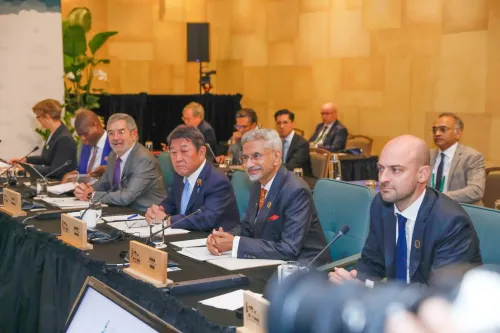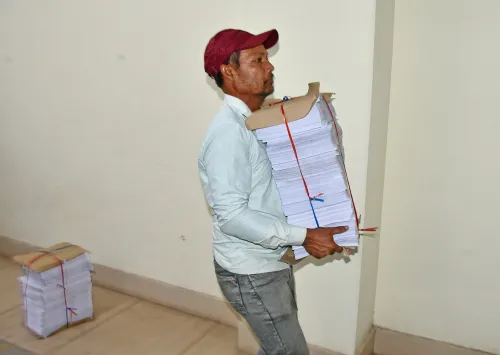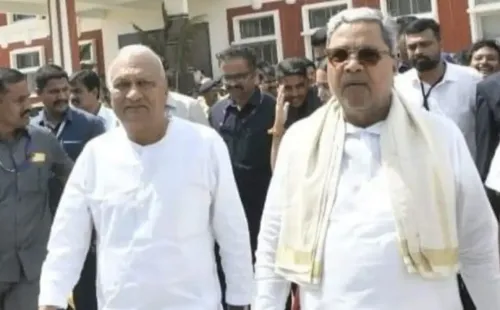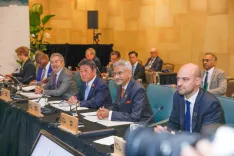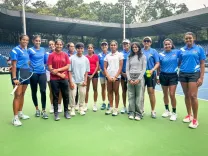What is AAP's New Student Wing for Alternative Politics?
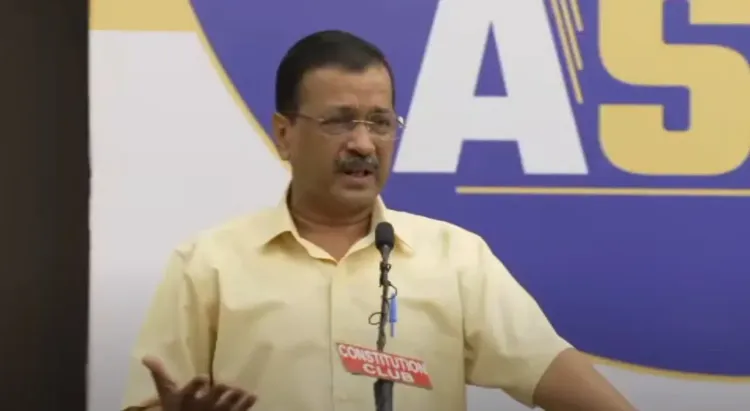
Synopsis
Key Takeaways
- AAP introduces ASAP to engage youth.
- Focus on alternative political solutions.
- Kejriwal emphasizes the impact of politics on everyday life.
- Criticism of mainstream parties for service failures.
- Encouragement for student political participation.
New Delhi, May 20 (NationPress) After a decade of establishing itself in national politics, the Aam Aadmi Party (AAP) unveiled its student wing on Tuesday, known as the Association of Students for Alternative Politics (ASAP). This initiative aims to engage young voters in alignment with the party's broader national goals.
In a rare public address following the Delhi Assembly elections in February, AAP National Convenor Arvind Kejriwal addressed students from Delhi University, Indraprastha University, and attendees from Punjab and Gujarat, stating, “We will compel individuals to reconsider the value of our alternative political approach compared to the conventional politics of other parties.”
Outlining his vision for ASAP, he proposed the formation of various student groups dedicated to discussions, cultural events, and social activities, creating a platform for students to engage with society.
Kejriwal emphasized that today’s political landscape contributes to significant national issues that are both unique and fundamental—such as the absence of adequate food, healthcare, and educational resources. He pointed out that, even after 75 years of independence, the nation continues to struggle with providing these essential services to its citizens, asserting that AAP’s alternative politics treats the poor and the affluent with equal concern.
Labeling the politics of Congress and BJP as detrimental, the former Chief Minister of Delhi remarked, “The conventional politics pursued by the new BJP administration in Delhi has led to power outages lasting 3-4 hours, increased fees in private schools, and a decline in the quality of government schools.”
Encouraging students and the youth to engage in politics, he stated, “Politics influences every facet of our lives.”
He also criticized the mindset among middle-class students that prompts them to disengage from political matters.
Kejriwal urged the youth not to view politics with disdain, explaining, “Even the electricity supply to your homes is influenced by politics. When AAP governed Delhi for ten years, we ensured 24-hour electricity. Now, power cuts are commonplace, illustrating that politics is intertwined with the issue of reliable and affordable electricity.”
“Your employment—whether in the government sector or private sector—is also impacted by politics. You cannot afford to remain detached from political processes. It is crucial to involve yourselves and become active participants in politics,” he added.
Reflecting on AAP’s governance in Delhi and its achievements in Punjab, Kejriwal highlighted the improvements in government schools and healthcare services while criticizing the BJP government in Delhi for allegedly compromising educational quality.
He took pride in dismantling the “education mafia” in Delhi's schools, which operates private institutions and arbitrarily increases tuition fees.
“It has only been three months since the Delhi government took charge, and already private schools have raised fees and employed security personnel to prevent students who cannot pay from entering,” he noted, referencing a prominent private school in Dwarka.

